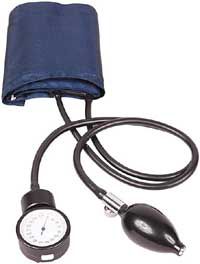A recent study led by Johns-Hopkins shows that taking certain blood pressure medications reduces the risk for developing Alzheimer’s disease, a devastating condition that affects more than five million people in the United States.
Blood pressure drugs that reduce the risk for Alzheimer’s disease
The research team analyzed data previously gathered on 3,000 elderly Americans. The researchers found that people over the age of 75 with normal cognition who used certain blood pressure drugs had half the risk for developing Alzheimer’s disease. The drugs include angiotensin-converting enzyme inhibitors, commonly known as ACE inhibitors, and angiotensin-1 receptor blockers, or ARBs for short.
Diuretics, commonly known as “water pills” also proved beneficial in those whose minds were still sharp. Additionally, the researchers found diuretics reduced the risk for Alzheimer’s disease in those who were already showing signs of mild cognitive impairment. Other blood pressure drugs, particularly beta-blockers and calcium channel blockers, did not show promise for reducing the risk for Alzheimer’s disease.
Indentifying new treatments for Alzheimer’s disease and other forms of dementia is critical to improving the health and well-being of an increasing number of older Americans. Alzheimer’s is a common cause of social and intellectual decline that substantially decreases the quality of life for the elderly.
Senior citizens living at home alone or in an assisted living facility should always take medications as directed to get the most out of drug therapy. Sometimes these treatments deliver more benefit than they had advertised.
Learn more about senior care franchising in our FREE eBook, download today!
Please refer to our most recent Franchise Disclosure Document for important details.
























